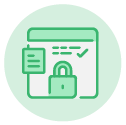Responses (2)
Eric Tan 8 March 2021
Hello Hispter testing, do not reply

resilience 19 August 2021
5 Ways To Manage Your Mental Health While Working From Home During The Covid-19 Pandemic
Are you finding it difficult to manage the restrictions during the Covid-19 heightened alert measures? Information is constantly changing, which can be perplexing, tiring, and even frightening. You might dread juggling work with personal commitments and struggle with feelings of anxiousness in managing this new normal.
Stress can easily build up and negatively influence you — both physically and mentally — whether it's caring for peers (persons with the lived experience of mental health conditions), at-risk family members, a volatile economy, juggling work commitments, homeschooling kids while schools are closed, or simply adjusting to unfamiliar scenarios.
It is critical to have Mental health support groups for children and adolescents. It would be useful for a group of young people who are dealing with their mental health and want to improve themselves to form a mental health support group.
It is essential to have mental health support groups that can support youth mental health in Singapore
Mental health support from time to time, everyone feels worried, anxious, or depressed. These are five steps to manage your mental health when working from home: Create a planned strategy for each day with clear boundaries between your work and personal lives will offer you a sense of routine and normalcy. Divide your day into little activities and be sure to schedule time for things you enjoy, such as hobbies or exercise, as well as time with your children or pets. Set a daily work pattern that includes taking frequent breaks, leaving your desk for lunch, and turning off your computer at a specific time. Also, make an effort to obtain enough sleep and consume healthy meals on a regular basis. Learn more about dealing with stress at work here.Exercise To Manage Stress At WorkExercise on a regular basis. While gyms are closed and social distancing policies are in effect, cardiovascular exercise such as walking, running, hiking, or playing with your children or pets can all help release endorphins (chemicals produced that help you feel better and maintain a positive attitude).You can also do certain workouts in your own home. Yoga and stretching exercises are also simple and effective approaches to maintain a calm and collected mind. Physical activity is beneficial to your mental health, particularly if you are stressed. The World Health Organization (WHO) recommends 150 minutes of moderate-intensity physical activity or 75 minutes of vigorous-intensity physical activity per week — or a combination of both if you're really determined. It only takes 15 minutes per day! This could help your mental health by taking your mind off work and to keep you recharged throughout the week and dealing effectively with work stress. The WHO recommends the following fitness suggestions for exercising at home:Take short active breaks throughout the day: from housework to playing with your kids, brief bursts of physical activity will keep you, physically and mentally healthy.Take an online workout class: the internet has made it possible to access a vast array of online workout courses, many of which are free and can be found on YouTube.Walking is a strategy that is simple yet useful. Even if you're at home, walking around for brief moments will keep you active. If you get a call, for example, instead of sitting down, stand or walk around.Engage in healthy hobbies. Spend time on cognitively stimulating hobbies such as reading, playing board games, or solving puzzles.
Physical activity is beneficial to your mental health, particularly if you are stressed. The World Health Organization (WHO) recommends 150 minutes of moderate-intensity physical activity or 75 minutes of vigorous-intensity physical activity per week — or a combination of both if you're really determined. It only takes 15 minutes per day! This could help your mental health by taking your mind off work and to keep you recharged throughout the week and dealing effectively with work stress. The WHO recommends the following fitness suggestions for exercising at home:Take short active breaks throughout the day: from housework to playing with your kids, brief bursts of physical activity will keep you, physically and mentally healthy.Take an online workout class: the internet has made it possible to access a vast array of online workout courses, many of which are free and can be found on YouTube.Walking is a strategy that is simple yet useful. Even if you're at home, walking around for brief moments will keep you active. If you get a call, for example, instead of sitting down, stand or walk around.Engage in healthy hobbies. Spend time on cognitively stimulating hobbies such as reading, playing board games, or solving puzzles.
Relaxation techniques such as meditation and breathing exercises can also help you manage your mental health. Maintain A Nutritious Diet While Working From Home Stress can have a negative impact on your eating habits as well as your physical health. Being aware of what prompts stress eating and staving off impulses are the best ways to combat stress or emotional eating. If you're prone to emotional eating, be aware of your triggers, as well as learning to manage your worries. Having healthy snacks on hand will help nourish your body, allowing you to better deal with stress nutritionally. Keeping your sugar levels in check throughout the day will keep your body in check and consume food in moderation.
If you're prone to emotional eating, be aware of your triggers, as well as learning to manage your worries. Having healthy snacks on hand will help nourish your body, allowing you to better deal with stress nutritionally. Keeping your sugar levels in check throughout the day will keep your body in check and consume food in moderation.
Pause & Reflect Deal With Stress At Work Pause for a moment. We seek control over our lives and given the current fluid situation, we must develop healthy coping strategies. Simple decisions to keep us from becoming overwhelmed are crucial such as disconnecting from work after hours and having time for one’s own self-care. Incorporating your own personal wellness plan into your daily routine will help to take your mind off and to focus on your own personal well-being. Connect With OthersDuring times of uncertainty and fear, it is critical to maintaining a connection as mental health conditions can be worsened by social isolation. We must make it a point to connect with others on a regular basis. Contact family, friends, and coworkers on a frequent basis by phone, text, FaceTime, or other virtual platforms. Make sure you keep an eye on individuals who are alone. Check-in with your loved ones frequently. This is especially important for youths who are looking for mental health support.
Pause for a moment. We seek control over our lives and given the current fluid situation, we must develop healthy coping strategies. Simple decisions to keep us from becoming overwhelmed are crucial such as disconnecting from work after hours and having time for one’s own self-care. Incorporating your own personal wellness plan into your daily routine will help to take your mind off and to focus on your own personal well-being. Connect With OthersDuring times of uncertainty and fear, it is critical to maintaining a connection as mental health conditions can be worsened by social isolation. We must make it a point to connect with others on a regular basis. Contact family, friends, and coworkers on a frequent basis by phone, text, FaceTime, or other virtual platforms. Make sure you keep an eye on individuals who are alone. Check-in with your loved ones frequently. This is especially important for youths who are looking for mental health support. Get sufficient rest and sleep.Working from home can cause a great deal of stress, which could be exacerbated when you don't get enough sleep. Getting eight hours of sleep is crucial right now to help you stay focused on work and manage challenges that the pandemic might pose.
Get sufficient rest and sleep.Working from home can cause a great deal of stress, which could be exacerbated when you don't get enough sleep. Getting eight hours of sleep is crucial right now to help you stay focused on work and manage challenges that the pandemic might pose. Before going to bed, it's best to avoid stimulants like alcohol, caffeine, and nicotine. If you're still having trouble sleeping, try establishing a new pre-bedtime ritual that includes a long bath or a cup of aromatic herbal tea. Also, making plans for tomorrow earlier in the day can help provide some respite and to know you are on top of your schedule. Looking at these techniques to manage stress can go a long way towards assisting to cope with the sudden changes that the pandemic might bring. Reach out to peer support groups or helplines to better manage your mental health. Having adequate support can help you learn coping strategies and help you voice your challenges.
Before going to bed, it's best to avoid stimulants like alcohol, caffeine, and nicotine. If you're still having trouble sleeping, try establishing a new pre-bedtime ritual that includes a long bath or a cup of aromatic herbal tea. Also, making plans for tomorrow earlier in the day can help provide some respite and to know you are on top of your schedule. Looking at these techniques to manage stress can go a long way towards assisting to cope with the sudden changes that the pandemic might bring. Reach out to peer support groups or helplines to better manage your mental health. Having adequate support can help you learn coping strategies and help you voice your challenges.
There are numerous resources available if you are feeling overwhelmed and require support. You could turn to professional help for assistance or join a peer support group. During a peer support session, persons in recovery will be able to share their experiences in coping with a mental health condition and focus on recovery strategies to better manage their condition together. Head to Resilience Collective to find out more about their peer support and resilience education programs.
Are you finding it difficult to manage the restrictions during the Covid-19 heightened alert measures? Information is constantly changing, which can be perplexing, tiring, and even frightening. You might dread juggling work with personal commitments and struggle with feelings of anxiousness in managing this new normal.
Stress can easily build up and negatively influence you — both physically and mentally — whether it's caring for peers (persons with the lived experience of mental health conditions), at-risk family members, a volatile economy, juggling work commitments, homeschooling kids while schools are closed, or simply adjusting to unfamiliar scenarios.
It is critical to have Mental health support groups for children and adolescents. It would be useful for a group of young people who are dealing with their mental health and want to improve themselves to form a mental health support group.
It is essential to have mental health support groups that can support youth mental health in Singapore
Mental health support from time to time, everyone feels worried, anxious, or depressed. These are five steps to manage your mental health when working from home: Create a planned strategy for each day with clear boundaries between your work and personal lives will offer you a sense of routine and normalcy. Divide your day into little activities and be sure to schedule time for things you enjoy, such as hobbies or exercise, as well as time with your children or pets. Set a daily work pattern that includes taking frequent breaks, leaving your desk for lunch, and turning off your computer at a specific time. Also, make an effort to obtain enough sleep and consume healthy meals on a regular basis. Learn more about dealing with stress at work here.Exercise To Manage Stress At WorkExercise on a regular basis. While gyms are closed and social distancing policies are in effect, cardiovascular exercise such as walking, running, hiking, or playing with your children or pets can all help release endorphins (chemicals produced that help you feel better and maintain a positive attitude).You can also do certain workouts in your own home. Yoga and stretching exercises are also simple and effective approaches to maintain a calm and collected mind.
Relaxation techniques such as meditation and breathing exercises can also help you manage your mental health. Maintain A Nutritious Diet While Working From Home Stress can have a negative impact on your eating habits as well as your physical health. Being aware of what prompts stress eating and staving off impulses are the best ways to combat stress or emotional eating.
Pause & Reflect Deal With Stress At Work
There are numerous resources available if you are feeling overwhelmed and require support. You could turn to professional help for assistance or join a peer support group. During a peer support session, persons in recovery will be able to share their experiences in coping with a mental health condition and focus on recovery strategies to better manage their condition together. Head to Resilience Collective to find out more about their peer support and resilience education programs.








